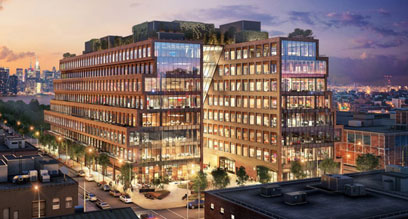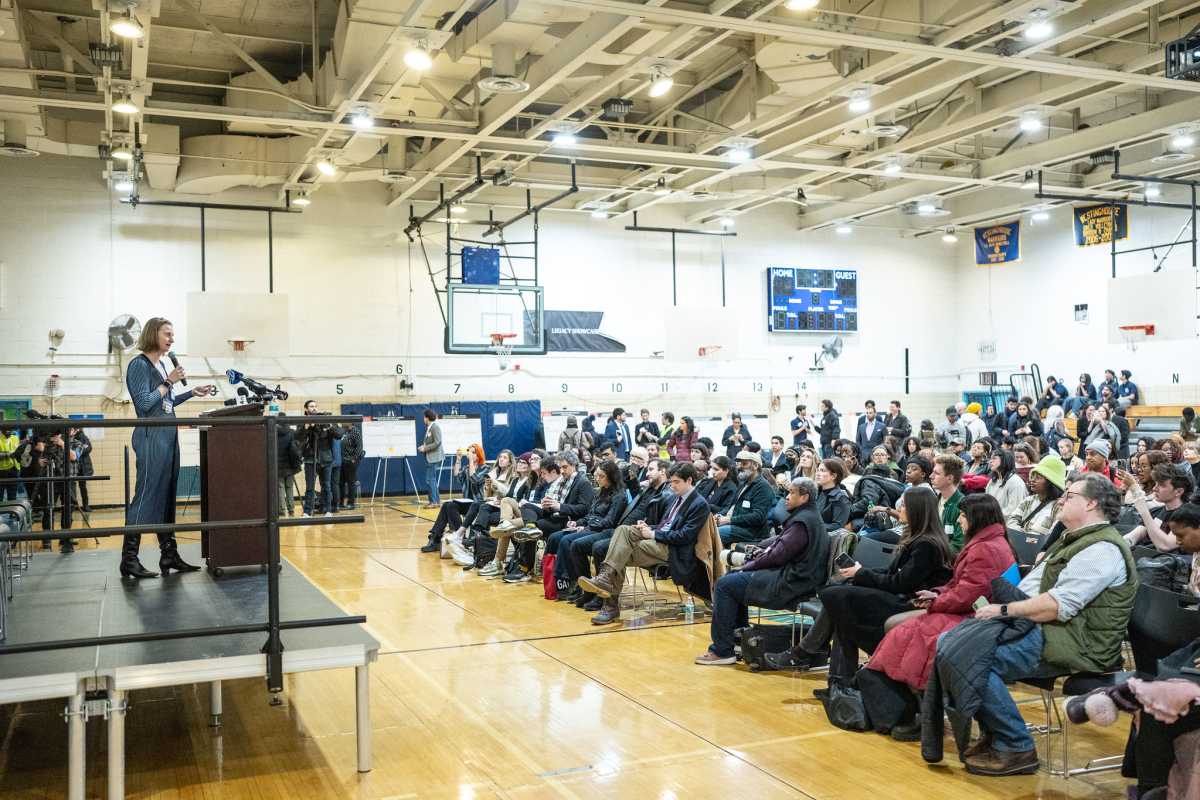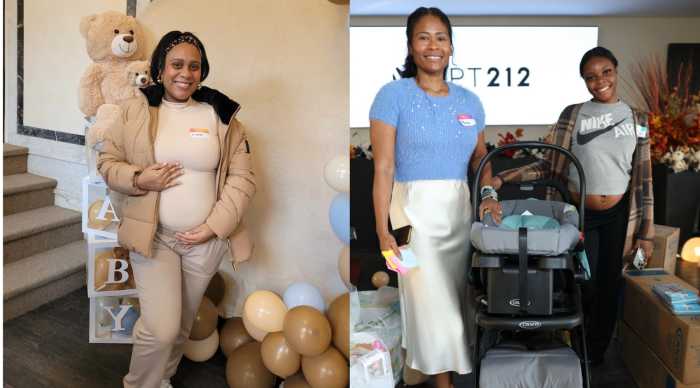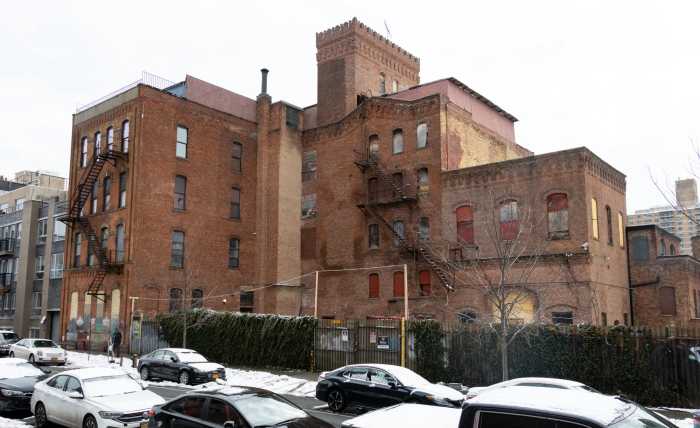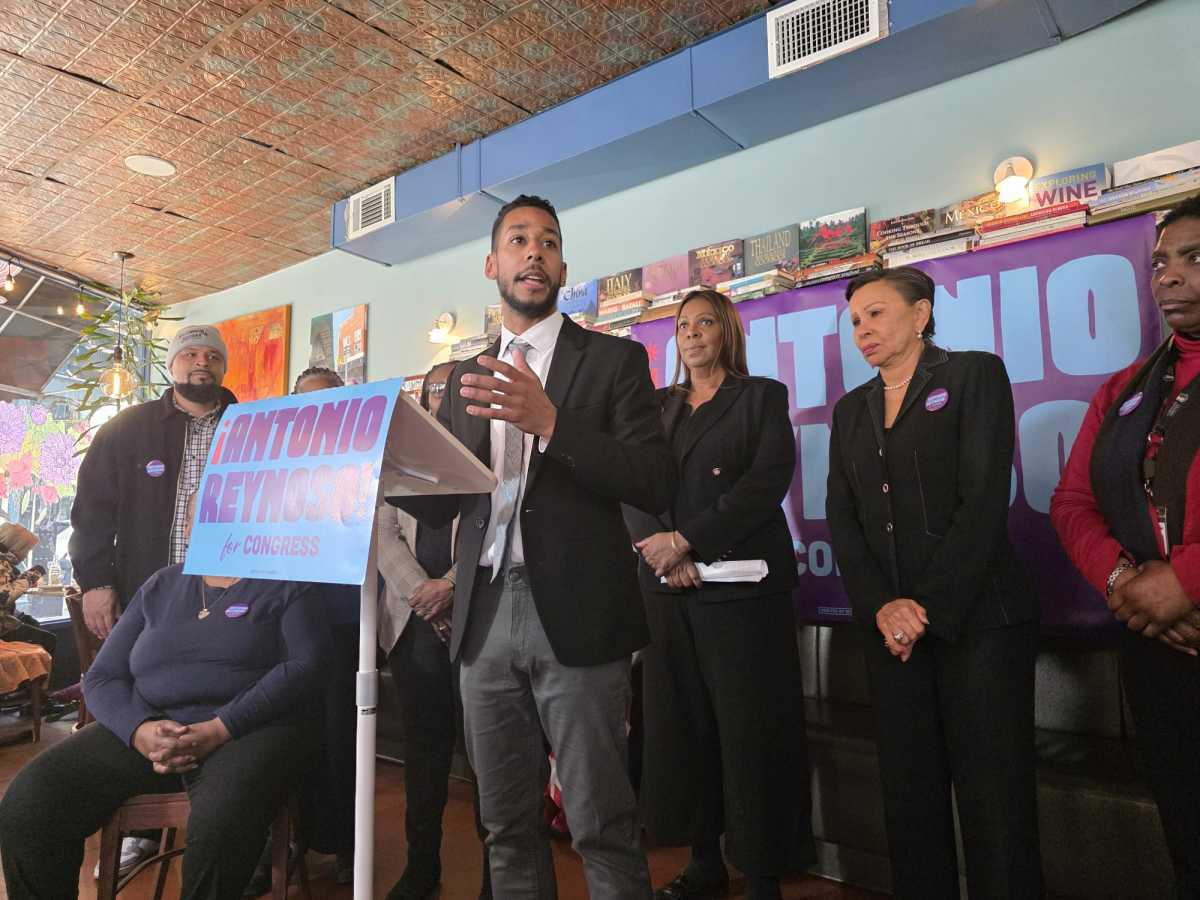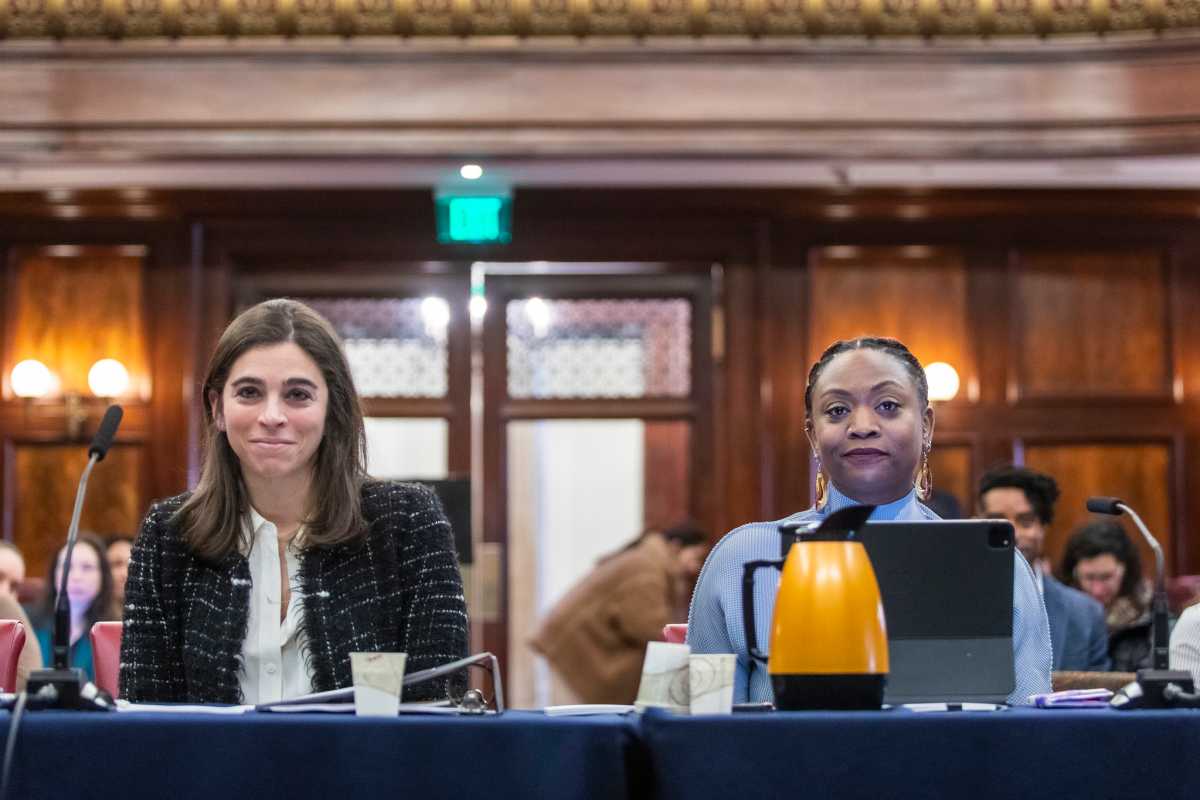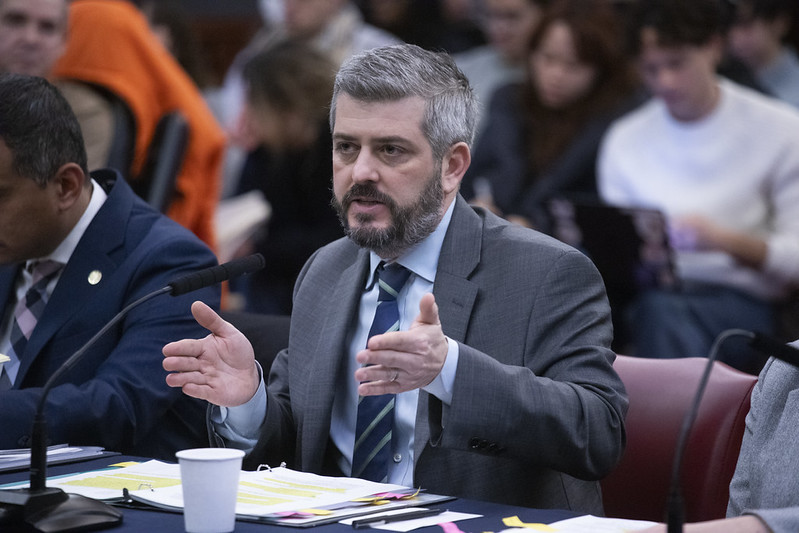A local panel shot down the city’s plan to rezone a large swathe of Williamsburg land to allow developers to build large office complexes in exchange for slivers of manufacturing space, arguing the change should first be tried out on a single block.
The members of Community Board 1 want the city to scale back a 14-block plan that would allow developers build more offices if they promise to set aside a small chunk of space for businesses that actually build things, claiming the rezoning is too wide-reaching and may allow future developers to create a densely-packed office district at the community’s expense.
“A one-block experiment is one thing — a 14-block experiment is way too much for us,” said board member Tom Burrows, eliciting applause from the rest of the board.
The board voted 22–4 with two abstentions and three recusals against the city’s pitch, and will send a letter to the city recommending a one-block trial-run along with a list of amendments for the small-scale project, such as measures to ensure the manufacturing space goes to blue-collar workers at below-market–rate prices.
The city teamed up with developers to concoct the zoning change to make way for Toby Moskowitz’s planned eight-story office building at Kent Street and West Avenue. Under the change, Moskowitz could apply for a special permit to dedicate almost all of the development to office space instead of setting aside half for so-called “community facilities” that usually become medical offices — but only because she would set aside 17-percent of the building to light manufacturing uses such as breweries and woodworking studios.
The city and the project’s developers have pitched the project as a welcome alternative to the hotels and nightlife venues allowed by — and routinely popping up in — Williamsburg’s so-called Industrial Business Zone.
But the board’s beef is not with Moskowitz’s project — members voted overwhelmingly in favor of the one-block development, citing the developer’s track record of prioritizing community concerns. Locals fear the city’s proposed larger rezoning would pave the way for developers who do not care about the community, who could use the loophole to profit off of sprawling office complexes while wiggling their way out of community benefits.
The city’s less-than-stellar track record on development in the area is enough to make community members quake at the mention of a new zoning, said board members — a massive 2005 re-zoning of the Williamsburg waterfront has paved the way for a sprawl of high-rises while neglecting to deliver on promises of additional green space, and most recently has failed to push through a rezoning that could ban hotels and nightlife from industrial zones.
“Time and time again, the city has put the cart before the horse,” said Artineh Havan. “They make promises they can’t keep.”
Still, a one-block rezoning may be illegal, depending on how the city chooses to interpret a vaguely-worded regulation that forbids rezoning a small piece of land to “benefit individual owners rather than pursuant to a comprehensive plan for the general welfare of the community” — but the Department of City Planning said it would not rule out a one-block change right off the bat, saying reps would have to assess the board’s request before deciding how to proceed.
A representative of Moskowitz’s project said the city may be unlikely to approve a one-block rezone, but it could certainly green-light small-scale changes if it decides the project is aligned with the community’s welfare.
“These things are supposed to be part of a well-considered plan,” said lawyer Ray Levin. “But if you look at how that’s been interpreted, it’s all over the place.”


